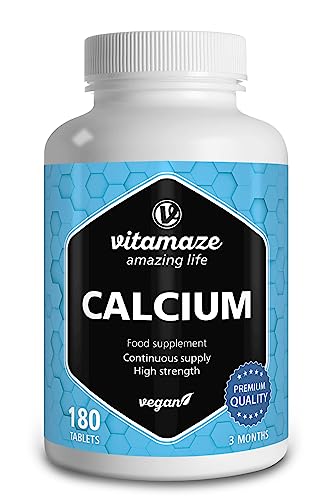Understanding the Importance of Calcium in Our Diet
The Role of Calcium in the Body
Calcium is a crucial mineral that plays several key roles in our overall health. Most notably, it is essential for developing and maintaining strong bones and teeth. Calcium also assists in muscle function, nerve transmission, and the release of hormones and enzymes that are necessary for many bodily functions. As we age, our calcium needs often increase, making it vital to consider our dietary intake and supplementation.
Impact on Bone Health
Think of calcium as the building blocks for our bones. From childhood to early adulthood, our bodies are busy depositing calcium into our bones, reaching peak bone mass generally around the age of 30. Not getting enough calcium during these formative years can lead to a greater risk of fractures or osteoporosis later in life. Therefore, ensuring adequate calcium intake is integral to maintaining bone health as we progress through life.
Choosing the Right Calcium Supplements: Forms and Potencies Explained
Understanding Different Forms of Calcium
Not all calcium supplements are created equal. When selecting a supplement, it’s important to know the different forms available, such as calcium carbonate and calcium citrate. Calcium carbonate requires an acidic environment for optimal absorption, so it’s best taken with meals. On the other hand, calcium citrate can be taken with or without food, making it a good option for those with less stomach acid. Understanding these differences can help guide us to the best choice for our needs.
Determining Potency and Dosage
The potency of a calcium supplement refers to the amount of elemental calcium it contains. It is important to read labels and understand that not all of the calcium in a supplement is elemental calcium. For many adults, the recommended daily intake of calcium is around 1000 mg, increasing for individuals over 50. By calculating the dose of elemental calcium and considering our existing dietary intake, we can make informed decisions about how much supplemental calcium we might require.
How to Incorporate Calcium into Your Daily Meal Plan
Finding Balance in Your Diet
Incorporating calcium into our daily meals doesn’t have to be difficult. Start by adding calcium-rich foods to different meals throughout the day. For breakfast, consider a bowl of fortified cereal paired with milk or yoghurt. Lunchtime could include a salad containing dark leafy greens like kale or spinach, topped with nuts or seeds that also contribute calcium. Snacking on cheese or a glass of fortified plant milk can further boost our intake.
Planning Your Meals
Planning weekly meals with calcium in mind can result in a more balanced diet. When preparing dinners, aim to include two servings of calcium-rich foods, such as fish with small bones, like canned sardines, or a stir-fry with tofu and broccoli. Keeping a variety of calcium sources on hand ensures we can easily create meals that meet our calcium needs without monotony.
Recognising the Best Calcium-Rich Food Sources
Dairy Products
Dairy products are among the most recognised sources of calcium. Milk, cheese, and yoghurt not only provide a substantial amount of calcium but also come with additional nutrients, such as protein and vitamins D and B12, which promote overall health and well-being.
Plant-Based Sources
If dairy isn’t a part of our diet, there are plenty of plant-based alternatives. Leafy greens, almonds, sesame seeds, and tofu are excellent choices that can contribute significantly to our calcium intake. Fortified plant-based milks, as well as certain grains and legumes, are also valuable sources of this important mineral. Exploring diverse food sources can help us meet our calcium needs while enjoying a varied diet.
Tips for Maximising Calcium Absorption in the Body
Pairing with Vitamin D and Other Nutrients
To ensure that the calcium we consume is effectively absorbed, pairing it with vitamin D is essential. This vitamin enhances calcium absorption in the intestines. Foods high in vitamin D include fatty fish, egg yolks, and fortified products. Consuming a balanced diet that provides these additional nutrients can significantly improve our body’s ability to utilise calcium.
Avoiding Iron and Caffeine Competition
Certain factors in our diet can inhibit calcium absorption. For instance, excessive caffeine and high levels of iron can compete with calcium for absorption in the body. If we are taking calcium supplements, spacing them apart from iron supplements or caffeine-heavy beverages ensures that we maximise the beneficial effects of the calcium we consume.

















